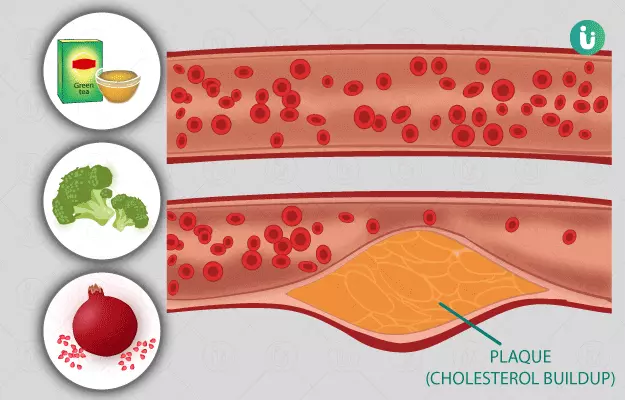Atherosclerosis is a deadly disease where plaque builds up in the walls of the arteries. Arteries are the blood vessels that help in carrying oxygen-rich blood to the heart and various other parts of the body. Plaque can be made up of fat, cholesterol, calcium or any other metabolic substance found in blood. When the plaque sticks onto the wall of the arteries, it stays there and over time, it hardens and narrows the arteries. This creates an obstruction to the flow of oxygen-rich blood to the organs.
Please check this page for complete treatment of high cholesterol.
Atherosclerosis can occur due to smoking, high fat-rich diet, obesity, diabetes and high blood pressure. High levels of triglyceride, low-density lipoprotein (LDL) and total cholesterol indicate a risk of heart disease. A person with atherosclerosis need medications to remove the clot from the artery, however, people with severe plaque build-up may have to undergo surgical procedures to clear up the plaque. If not treated, atherosclerosis can lead to critical conditions like coronary artery disease, peripheral artery disease and even chronic kidney disease.
Apart from the medical treatment, you can add a few things in your diet to slow down the progression of the disease and ensure a faster recovery. Here in this article, we will give you some simple home remedies that can clear off the plaque from your arteries to prevent atherosclerosis.
(Read More - High Cholesterol treatment)


































